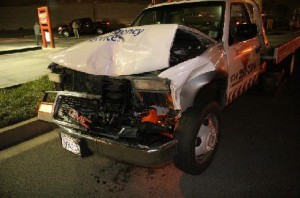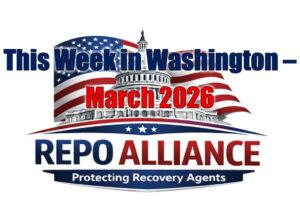 With the advent of the Dodd-Frank Consumer Protection Act and its enforcement arm, the Consumer Financial Protection Bureau (CFPB) the new “buzz” word in the lending industry and the collateral recovery industry is compliance. Throw in the FDCPA, GLBA, SCRA, FCRA, etc., etc. it becomes abundantly clear that the potential for liability and litigation is daunting.
With the advent of the Dodd-Frank Consumer Protection Act and its enforcement arm, the Consumer Financial Protection Bureau (CFPB) the new “buzz” word in the lending industry and the collateral recovery industry is compliance. Throw in the FDCPA, GLBA, SCRA, FCRA, etc., etc. it becomes abundantly clear that the potential for liability and litigation is daunting.
Read More!










More Stories
Colorado Bill Aims to Severely Impact All Repossession Operations
Today is Fallen Agents Day – 2026
From Auction Cutting to Field Programming: The Structural Shift No One Budgeted For
Bad Apples in the Repossession Industry
Why Self-Help Repossession Is Taken for Granted — and Why Losing It Would Hurt Consumers Most
A Necessary Distinction: Financial Oversight vs. Financial Control